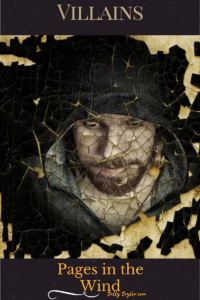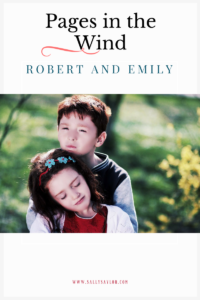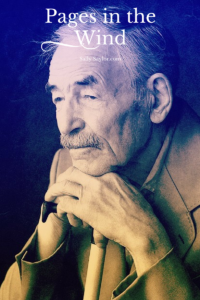Villains

Villains. They’re interesting to write and sometimes fun to hate. My upcoming book, Brooklyn Bitters, has a “love to hate” villain. The villain in Pages in the Wind, however, is evil. He makes you uncomfortable and can bring up some intense feelings. In this passage, Emily walks in on the villain who is about to manipulate her:
I stepped into the front room and rolled my eyes, recognizing Father’s Pierre Cardin slacks underneath a newspaper. I tried to sneak past him.I cringed at the sound of paper crumpling.
“What are you doing?” he asked. He smoothed the newspaper and placed it on the coffee table.
“Not much.” The question and the folded paper told me he wanted a confrontation. I didn’t. I decided to do my time and leave quickly. Indifference was my best weapon. Of course, it’s play-acting because every word he had ever said to me was like stepping on dog feces; no matter how hard I scraped the bottom of my shoe, it still stunk.
He looked like he’d just returned from the stylist; his hair was short on the sides and wavy on top. He wore a fitted yellow shirt, slacks, and a two-toned belt, which matched his expensive Italian shoes. I chewed the inside of my mouth to prevent the scowl that begged to come out. He enjoyed Grandma’s money, and all he ever did for her was change a few light bulbs and beat her granddaughter.



 Have you gone somewhere and knew you’d been there before? Met someone and felt an instant connection? What about a snapshot in your mind that disappeared?
Have you gone somewhere and knew you’d been there before? Met someone and felt an instant connection? What about a snapshot in your mind that disappeared?


 We all need a place to feel safe. For most of us, it’s our home. After a lousy day at work or a dismal day at school, home is a beacon. But what if home doesn’t offer safety? In this passage from Pages in the Wind, eight-year old Emily, talks about her safe place – Grandma’s house:
We all need a place to feel safe. For most of us, it’s our home. After a lousy day at work or a dismal day at school, home is a beacon. But what if home doesn’t offer safety? In this passage from Pages in the Wind, eight-year old Emily, talks about her safe place – Grandma’s house: I love the sibling relationship between Emily and Robert in Pages in the Wind. I think it’s especially important in an intense book. We need someone to count on. In this excerpt, the tender relationship is defined:
I love the sibling relationship between Emily and Robert in Pages in the Wind. I think it’s especially important in an intense book. We need someone to count on. In this excerpt, the tender relationship is defined: She’s not a villain. She’s not even mean. Claire doesn’t neglect her duties. She educates her children and gives them cultural advantages. She decorates her daughter’s bedroom with beautiful French decor. She studies the teen magazines to make sure her child is dressed in the latest trends. But…you won’t love her. You probably won’t even like her. She’s Claire in Pages in the Wind.
She’s not a villain. She’s not even mean. Claire doesn’t neglect her duties. She educates her children and gives them cultural advantages. She decorates her daughter’s bedroom with beautiful French decor. She studies the teen magazines to make sure her child is dressed in the latest trends. But…you won’t love her. You probably won’t even like her. She’s Claire in Pages in the Wind.
